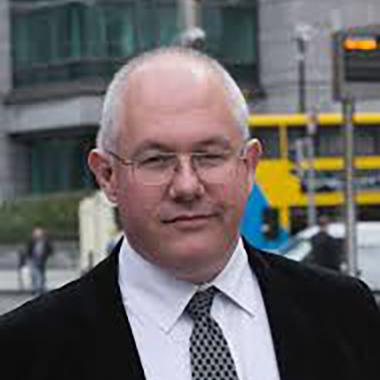Joe Harbison, MB, MD, FRCP
Associate Professor of Medical Gerontology
Addressing population vascular risks will help reduce prevalence of dementia and cardiovascular morbidity and mortality.
Current Work
Consultant in stroke and neurovascular medicine; Academic Geriatrician; Director of Undergraduate Teaching and Learning, School of Medicine, Trinity College Dublin
Personal Hero
Richard Feynman
Words of Strength
Reorganizing systems using limited resource
Vision
Even without specific treatments for dementia, we already have tools to reduce its impact. Addressing population vascular risks will help to reduce prevalence of dementia in addition to reducing cardiovascular morbidity and mortality.
Strategy
Joe is a stroke physician with an interest in early detection and identification of vascular risks and in the relation between atrial fibrillation and dementia. Joe is also responsible for the oversight of the training of future doctors and therapists in Trinity College Dublin.
Motivation
Stroke and cerebrovascular disease are common preventable causes of cognitive decline. Stroke prevention and treatment can help achieve reductions in prevalence of disability, dementia and cognitive impairment. Incorporating education concerning dementia and cognitive impairment in undergraduate curricula helps create the next generation of clinicians skilled in dementia care.
Education & Experience
Joe received his Medical Training in University College Dublin and his Higher Specialist Training in Geriatrics in the North East of England, developing a specialist interest in Stroke and Cerebrovascular disease. He received his Doctorate from the University of Newcastle on the topic of Respiratory Sleep disorders following Stroke. After completion he became a Clinical Senior Lecturer in the new Hull & York Medical School and Consultant Stroke Physician in York. He returned to Ireland in 2007, where he helped develop the first Postgraduate Qualification in Stroke Care and later became National Lead in Stroke for 8 years, establishing the National Clinical Programme for Stroke. He is currently Clinical Lead for the National Stroke Audit, a database of clinical information on 40,000 individuals with stroke.


